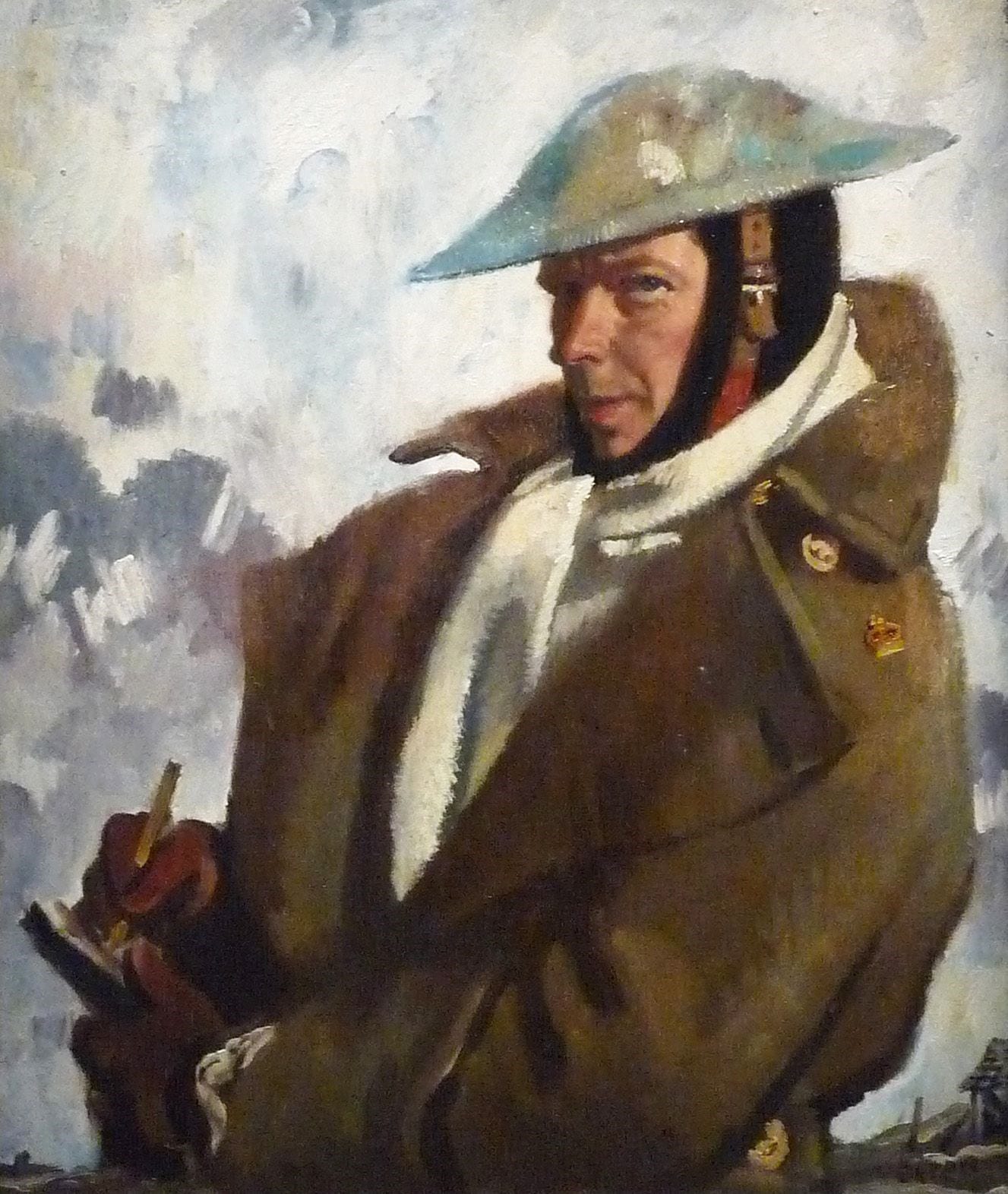A Memory of the Somme
A poetic tribute to a dead soldier of WW1, by a man saw the horror and the sacrifice at first hand.
Sir William Orpen was the most prolific artist working with the Allied troops during WW1. He sketched and painted daily, often right at the front line and created a extraordinary body of work. He continued right through Armistice and the Peace Conference of 1919 where he was the one official artist.
His artwork is hugely eloquent. Yet he felt that his talent was insufficient to explain what he saw and how he felt. Only poetry enabled him to be brutally honest about his feelings.
One day he came across a corpse at Beaumont-Hamel. He was alone with the dead and decaying stranger and sat for a long while, nearby in the bright Spring sun. When he got back to his quarters he wrote the following poem. It has been printed many times, but here you can read the words in Orpen’s own hand in a copy of the poem he gave to the English military censor Lt-Col Arthur Lee, a man who remained his friend and correspondent for the rest of his life.
Today is, Remembrance Sunday. For many it might be hard to personalise commemoration. These are the words of a man who saw it all with own eyes, and felt it with his own heart.
Orpen’s hand-writing is easy enough to read when you get used to is and I have read hundreds of pages of letters and notes by the artist while studying his life. In case you find it hard to read, here’s a typed version which is the one usually used. It is interesting to spot the differences between this and his hastier, hand-written thoughts.
A MEMORY OF THE SOMME
by Sir William Orpen (Spring 1917).
A fair spring morning—not a living soul is near,
Far, far away, there is the faint grumble of the guns;
The battle has passed long since—
Now all is Peace.
At times there is the faint drone of aeroplanes as
They pass overhead, amber specks, high up in the blue;
Occasionally there is the movement of a rat in the
Old battered trench on which I sit, still in the
Confusion in which it was hurriedly left.
The sun is baking hot.
Strange odours come from the door of a dug-out
With its endless steps running down into blackness.
The land is white—dazzling.
The distance is all shimmering in heat.
A few little spring flowers have forced their way
Through the chalk.
He lies a few yards in front of the trench.
We are quite alone.
He makes me feel very awed, very small, very ashamed.
he has been there a long, long time—
Hundreds of eyes have seen him,
Hundreds of bodies have felt faint and sick
Because of him.
Then this place was Hell,
But now all is Peace.
And the sun has made him Holy and Pure—
He and his garments are bleached white and clean.
A daffodil is by his head, and his curly, gold
Hair is moving in the slight breeze.
He, the man who died in “No Man’s Land,” doing
Some great act of bravery for his comrades and Country—
Here he lies, Pure and Holy, his face upward turned;
No earth between him and his Maker.
I have no right to be so near.






Thank you to every body who took the trouble to read my most recent Substack post. I'd love to see you again at my Substack page - https://peterharkness.substack.com/ - if you are not already a subscriber. It's free and always will be. So, so no obligation!
I'm glad you read it.